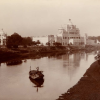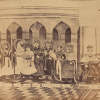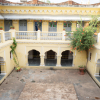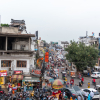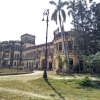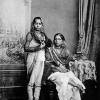This series of interviews was conducted while researching for the book, The Scenes We Made: An Oral History of Experimental Theatre in Bombay, ed. Shanta Gokhale (Mumbai: Speaking Tiger Books, 2015).
Beginning with the Padamsees in 1944–45, Cedric Santos was an integral part of the production of English theatre in Bombay till Ebrahim Alkazi left for NSD in 1961, and Satyadev Dubey took over the mantle. Santos handled what he prosaically calls the ‘economics of production’.
With the Padamsees, he was in the Theatre Group, rehearsals for which happened at Kulsum Terrace. They used to stage plays in a hall at St. Xavier’s College, a time Santos remembers for its blossoming cosmopolitanism in which many people from different communities were coming together for the first time to forge the shared culture of modern India.
When Alkazi broke away from the Theatre Group in 1954 to form his own Theatre Unit at the Bhulabhai Desai Memorial Institute, Santos followed. Alkazi was an assertive personality, extremely professional and serious in his approach to theatre. This was a time when newspapers would review their plays like they review movies today, and under this media attention the experimental theatre artists flourished under the guiding hand of Alkazi.
By the time Alkazi left for NSD in 1961, he had already recognised the need for vernacular theatre and thus recruited into his Theatre Unit various Hindi speakers, like Satyadev Dubey, who would take over the Theatre Unit and shift base once again to the Walchand Terrace. Santos was there for the transition but soon became busy with his personal and professional affairs and grew distant from the everyday world of theatre.

